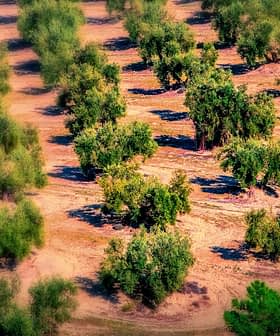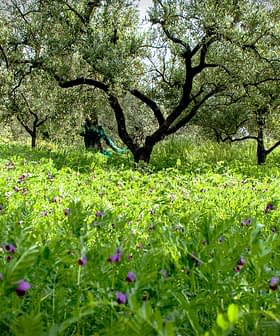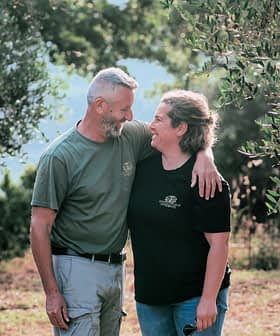Olive Pits Fuel Flights from Seville

Olive pits and vegetable remains were converted into biofuel for over 200 airplanes at Seville airport, with flights from six airlines using 4.5 percent of the sustainable aviation fuel. Cepsa estimates that replacing jet fuel with biofuel could reduce aviation emissions by up to 90 percent, with plans to produce 2.5 million tons of biofuel in Andalusia to create new jobs and cover aviation fuel demand.
Olive pits, used cooking oil and other vegetable remains were converted into biofuel for more than 200 airplanes that flew from Seville airport at the end of November.
According to Cepsa, the biofuel manufacturer, flights from six separate airlines used 4.5 percent of the sustainable aviation fuel in their tanks. The European-wide goal for sustainable aviation fuel incorporation is two percent by 2025.
See Also:Tourist Train in Provence Partially Fueled by Olive-Pit BiofuelThe company said the initiative avoided 200 tons of carbon dioxide emissions. Overall, they argue that replacing jet fuel with biofuel would reduce emissions from aviation by up to 90 percent.
Most jet fuel is kerosene based with various additives to prevent congealing, lower the freezing point and raise the flash point.
“We have seen that it is not necessary to make any changes in aircraft engines or in the supply systems of airports or aircraft to embrace this type of biofuel,” Javier Gándara, president of the national airlines association, told local media. “It is possible to mix sustainable fuel with conventional kerosene.”
According to Our World in Data, a non-profit, flying accounted for about 2.5 percent of global carbon dioxide emissions and 1.9 percent of total greenhouse gas emissions before the start of the Covid-19 pandemic.
The organization estimated that aviation produced 1.04 billion tons of carbon dioxide alone in 2018.
See Also:Passenger Plane Flies 560 Kilometers Using Recycled Cooking OilCarlos Barrasa, Cepsa’s commercial and clean energy director, said the project plays an important role in the green transition of the aviation sector and would create new jobs in the region.
He said the company plans to produce 2.5 million tons of biofuel at its plant in southwestern Andalusia, of which 800,000 tons would be used for jet fuel.
Barrasa estimated that the current biomass generation in the autonomous community and the world’s largest olive-growing and olive oil-producing region could cover about 10 percent of aviation fuel demand from Seville airport.
According to Tobi Pardo, the director of aviation and asphalt production at Cepsa, the main limiting factor in the widespread adoption of biofuels for aviation is cost. He estimated biofuel production costs two or three times more than traditional jet fuel.
Despite these limitations, Cepsa expects to produce enough biofuel to cover around 400,000 kilometers of flights from participating airlines, a total of 400 and 500 flying hours.









